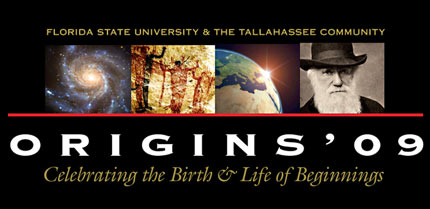 “Darwin’s Four Great Books: The Origins of a Revolution”
“Darwin’s Four Great Books: The Origins of a Revolution”
E.O. WILSON
Evolutionary Biologist, Author, Harvard University
FREE • NO TICKET REQUIRED
Date: March 23
Time: 8 p.m.
Venue: Bethel AME Church, 501 W. Orange Avenue
Available via webcast
“Ed Wilson is one of the most influential thinkers of our time.” – Steven Pinker, Evolutionary Psychologist, Author
“Wilson is one of our most distinguished evolutionists and a great champion of biodiversity. He is also one of the broadest thinkers on the intellectual stage today." – Paul R. Ehrlich, biologist, author
"He more than anyone understands the relationship between
genes and culture -- and it started with his ants."
– The Guardian
Now in his 80th year, Alabama-born Edward Osborne (E.O.) Wilson has long enjoyed a reputation as one of the world’s most distinguished scientists. A native of Birmingham, Wilson spent much of his childhood in Mobile, Alabama. By the age of 9, he was fixated on a dream of becoming a great biologist. All but completely blinded in one eye from a childhood fishing accident, he developed an acuity for studying small animals, the most prominent being ants.
By the time he completed a bachelor’s degree in biological science from the University of Alabama in 1950, Wilson had established himself as a remarkable talent in the field of myrmecology, the study of ants. When he finished a Ph.D. at Harvard University in 1955, he was recognized as the world’s foremost authority on ant biology. In the late 1950s, he worked out the underlying (and at the time, somewhat radical) theory of chemical communication among animals, proving the existence of compounds that later were identified as pheromones.
After being invited to join the Harvard faculty in 1956, Wilson spent the next 50 years building an extraordinary career that has produced hundreds of seminal works, including more than 25 books—two of which won Pulitzer Prizes. Today he remains at Harvard as Pellegrino University Research Professor Emeritus and Honorary Curator in Entomology.
Scholars attribute Wilson’s groundbreaking research, original thinking, and graceful popular writing as having irrevocably changed the way humans think of nature, and our place in it. Two of his non-fiction books, The Ants (1990, with Bert Hölldobler) and On Human Nature (1978), won Pulitzers. In the latter book, Wilson addressed the venerable “nature vs. nurture” argument head on, arguing that the human mind is shaped as much by genetic inheritance as it is by culture (if not more).
That book was a response to an even more controversial book, Sociobiology: The New Synthesis, published in 1975. In the book, Wilson applied the discipline of sociobiology—a field he defined as "the systematic study of the biological basis of all social behavior”—to the behavior of all species, including humans. His observations on the biological origins of human nature and society put him at the epicenter of a heated debate in which he endured bitter personal attacks from powerful critics (e.g. Stephen J. Gould). But Wilson’s ideas withstood the test of time, and thanks to discoveries in genetics and neuropsychology since the late 1970s, his fundamental ideas in sociobiology have won widespread acceptance throughout the scientific community. Today, as “the father of sociobiology,” Wilson is credited with laying the scientific groundwork for the burgeoning field of evolutionary psychology.
Since the 1986 publication of his book Biophilia (literally, the love of life) Wilson’s passion for spreading an environmental or "conservation ethic” has dominated his work. Today he is one of the world’s most outspoken advocates for conservation and biodiversity, fighting to preserve the wondrous variety of the natural world.
Last year, as a tribute to Wilson’s enormous contribution to conservation biology, Florida Panhandle-based conservationist M.C. Davis announced the establishment of the E.O. Wilson Biophilia Center. Scheduled to open in the fall of 2009, the 25,000-sq.-ft center is being built inside Davis’ 48,000-acre Nokuse Plantation in Walton County. Featuring an exhibit hall, theater, nature trails and laboratories, the center is being designed as one of the country’s elite educational centers available to teachers and students of all ages interested in fields ranging from population genetics to wildlife management.
Wilson’s latest literary project is a first novel, a work-in-progress with an environmental theme set in the South. A prominent feature in the book, according to the author, is research being conducted by biologists at Florida State University.
Above photo by Joe D Pratt.

